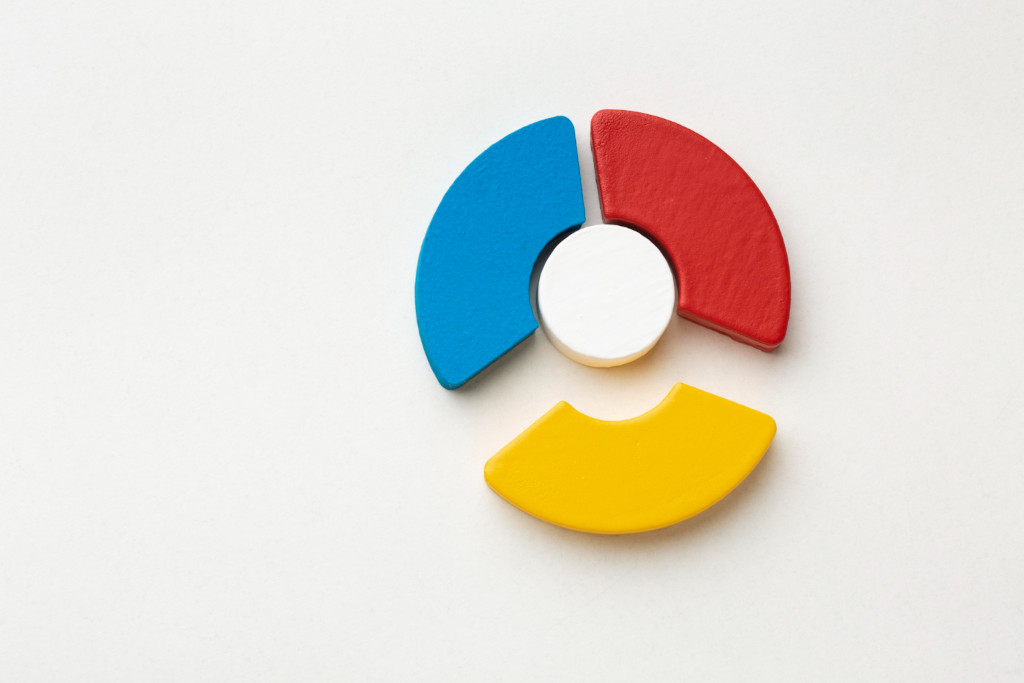SingaporeMotherhood | Preschooler & Up
March 2024
When Maths Doesn’t Add Up – Could My Child Have Dyscalculia?

Does maths homework turn into a nightly battle? Your child seems to struggle with simple calculations, repeatedly make careless mistakes, or experience anxiety around the most basic mathematical concepts. Is it possible they don’t just ‘hate’ maths? While some level of difficulty is normal, persistent challenges could point to a learning disorder called dyscalculia. Some call it ‘maths dyslexia’, even though they’re unrelated.
To learn more about dyscalculia, we spoke to Sandra Lim, the founder of Math Nuggets, a maths tuition centre for primary and secondary school levels. The mum to a toddler devotes her career to helping students who really struggle with the subject, including those diagnosed with such learning disabilities. Here, Sandra simplifies what dyscalculia is, shows us how to know if our child has it, and shares helpful resources to up your child’s numbers game.
What is dyscalculia?
Dyscalculia is a learning disorder that affects an individual’s ability to understand arithmetic, mathematical reasoning, and numerical concepts. People with dyscalculia often struggle to perform basic arithmetic operations, interpret mathematical symbols and concepts, and understand mathematical word problems.
Studies suggest that dyscalculia affects around five to seven per cent of the population. And while it can affect all age groups, it generally becomes noticeable during the early years of formal schooling, when more complex maths concepts are gradually introduced.
Dyscalculia is not related to intelligence. Dyscalculic individuals often have average to above-average intelligence in other areas.
What causes dyscalculia?

The exact causes aren’t clear, but like with various other learning disabilities, research shows a combination of contributing factors. Firstly, genetic factors may play a role, as dyscalculia is known to run in families. Then there are neurological factors, such as abnormalities in brain development or differences in brain structure and function.
Additionally, environmental factors, such as early exposure to mathematical concepts and the quality of maths instruction, can influence the development of dyscalculia. This condition, however, is not the result of a lack of educational opportunities, intellectual disability, or sensory impairments.
Dyscalculia is not a result of laziness or lack of effort. It is a neurodevelopmental condition that affects the brain’s processing of numerical information.
(See also: “MY KID FAILED MATHS, AND MY HUSBAND IS MAD AT ME. SO WHAT?”)
What are the signs of dyscalculia?
For children between the ages of 6 and 12, dyscalculia often manifests as:
- Difficulty in basic arithmetic — addition, subtraction, multiplication, and division
- Struggles with understanding maths symbols and concepts
- Trouble with memorising times tables and other maths facts
- Inability to comprehend and solve maths word problems
- Inconsistencies in maths abilities
- Lower performance in maths compared to other subjects
- Display a slower rate of progress in learning maths skills than their peers
We often see dyscalculic students who repeatedly struggle with the concept of fractions. For example, they might say: ⅓ + ⅖ = ⅜
Dyscalculia doesn’t only affect mathematical abilities. In reality, individuals may also face challenges in other areas, such as time management, spatial awareness, and organisational skills.
What should I do if I suspect my child has dyscalculia?
If you notice a combination of the above-mentioned signs, it’s crucial to consult the professionals for a comprehensive assessment. Your child’s teachers or doctor can point you in the right direction. The diagnostic process usually involves a series of educational assessments. Firstly, educators evaluate the child’s performance in mathematics and note specific areas of difficulty and strengths.
Next, an educational psychologist may conduct a psychological assessment, including standardised tests, interviews, and observations, to identify the presence of dyscalculia and rule out other potential causes. Don’t worry, even if diagnosed with dyscalculia, your child can still thrive in mainstream schools with appropriate support.
In some cases, a medical evaluation may be recommended to rule out any neurological or medical conditions that could contribute to the difficulties.
My child was diagnosed with dyscalculia. What’s next?
Early identification and intervention are crucial. Educational support, specialised teaching methods, and accommodations can help your child in building foundational maths skills.

- Educational Support: Work with educators to develop an Individual Education Plan (IEP) that outlines specific accommodations and modifications to support your child’s specific needs.
- Classroom Accommodations: Collaborate with your child’s teachers to implement accommodations in the classroom, such as extra time for maths tests, the use of manipulatives (hands-on learning tools), or access to a calculator.
- Remedial Programmes: Explore specialised maths intervention programmes for dyscalculic learners. These often tailor strategies to compensate for the condition and help children build foundational maths skills.
- Educational Therapies: Consider educational therapy for dyscalculia. Trained specialists can provide targeted interventions to address difficulties and improve overall mathematical reasoning.
- Assistive Technology: Explore the use of assistive technology tools, such as maths software, apps, or voice-activated calculators, to support your child’s learning.
- Support Services: Provide access to additional resources, such as tutoring to reinforce mathematical concepts and using multisensory techniques to support the learning process.
- Parental Involvement: Stay actively involved in your child’s education, working closely with teachers, specialists, and therapists to provide consistent support.
By implementing these strategies as early as possible, you can help mitigate the impact on your child’s confidence and self-esteem, while improving their chances at maths mastery.
(See also: 7 FIRST-RATE ENRICHMENT PROGRAMMES FOR SPECIAL NEEDS CHILDREN IN SINGAPORE)
Could my child have other learning disorders alongside dyscalculia?
While dyscalculia is a specific learning disorder that affects mathematical abilities, it is not uncommon for dyscalculic learners to have other learning disabilities or neurodevelopmental disorders.
Some other common conditions co-occurring with dyscalculia include dyslexia, which affects reading and spelling, and ADHD, which affects attention, impulse control, and hyperactivity. Other co-existing conditions may include specific language impairment, executive functioning deficits, and autism spectrum disorder.
Dyscalculia may occur alongside other learning disorders, but this does not imply a direct causal relationship. Each individual is unique, and the presentation of learning difficulties varies.
(See also: HOW ADELE CAN TEACH YOUR CHILD MATHS & OTHER TIPS THAT HELP CHILDREN WITH DYSLEXIA LEARN BETTER)
What about other types of maths-related learning disabilities?
While not specific to mathematics, some other learning disorders may also affect one’s ability to perform in maths. Some individuals may experience a combination of these conditions, further highlighting the importance of personalised and comprehensive interventions.
Dysgraphia: This learning disability affects writing abilities, including difficulties with handwriting, spelling, and organising thoughts on paper. While dysgraphia primarily relates to writing, it can also impact mathematical skills, as mathematical problem-solving often involves written calculations and explanations.
Dyspraxia: Also known as Developmental Coordination Disorder (DCD), this is a neurological condition that affects coordination, motor skills, and movement. Dyspraxia may influence a student’s ability to perform precise movements, potentially impacting tasks such as writing numbers neatly, aligning columns, or accurately using maths tools.
While these conditions share some commonalities, it’s essential to recognise their distinct characteristics to provide targeted support.
Resource #1: Coping Strategies for Dyscalculic Students

- Visual Aids: Utilise visual representations such as charts, graphs, and diagrams to enhance understanding. Visual cues can make abstract concepts more concrete.
- Real-world Applications: Connect mathematical concepts to real-life situations. Show how maths is used in daily activities to make learning more relevant and practical.
- Use Manipulatives: Use hands-on learning materials like counting beads, number blocks, or measuring tools. These tangible objects can aid in grasping abstract mathematical concepts.
- Break Down Tasks: Divide complex tasks into smaller, more manageable steps. This approach makes maths appear less overwhelming and make learning more achievable.
- Use Technology: Leverage educational apps, games, and software designed to support dyscalculic learners. Interactive technology can provide a dynamic and engaging learning experience.
- Multisensory Learning: Engage in activities that involve multiple senses. Use hands-on materials, visual aids, and auditory cues to reinforce mathematical concepts.
Resource #2: Practical Tips for Parents
- Establish Routines: Create consistent daily routines to provide structure and predictability. This can help dyscalculic children manage time-related challenges.
- Positive Reinforcement: Acknowledge and celebrate small achievements. Positive reinforcement fosters a positive attitude toward learning.
- Regular Communication: Maintain open communication with teachers and educational professionals. Collaborate on strategies that can be implemented both in school and at home.
- Play Maths Games: Turn learning into a game. Board games, card games, or simple counting activities can make maths more enjoyable.
- Encourage Questions: Create an environment where your child feels comfortable asking questions and seeking help. Encouraging curiosity fosters a positive attitude toward learning.
- Patience and Support: No matter how frustrated you feel, be patient and supportive. Understand that each child learns differently, and progress may come at different rates.
(See also: WHY I BELIEVE IN TUITION)
The importance of early intervention cannot be overstated. At Math Nuggets, we’ve encountered numerous instances where parents, upon noticing certain signs and coupled with recommendations from school teachers and our team, opted to have their child assessed. Such proactive steps give us a deeper understanding of the challenges the child faces, thus enabling us to tailor our support effectively and approach their learning journey with empathy and patience. This significantly enhances the child’s overall well-being and educational experience, opening the door to remarkable improvements in their learning journey.
Sandra Lim, founder of Math Nuggets
Featured image: Freepik
All content from this article, including images, cannot be reproduced without credits or written permission from SingaporeMotherhood.
Follow us on Facebook, Instagram, and Telegram for the latest article and promotion updates.





